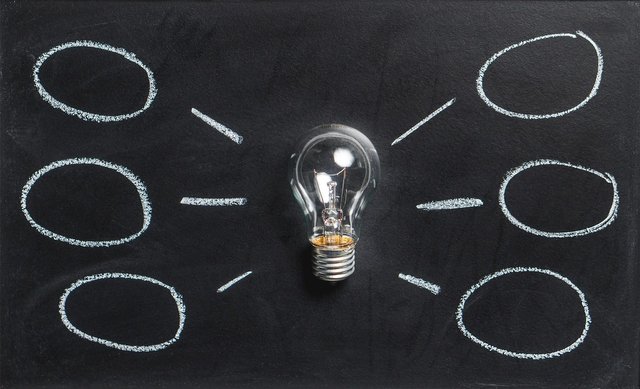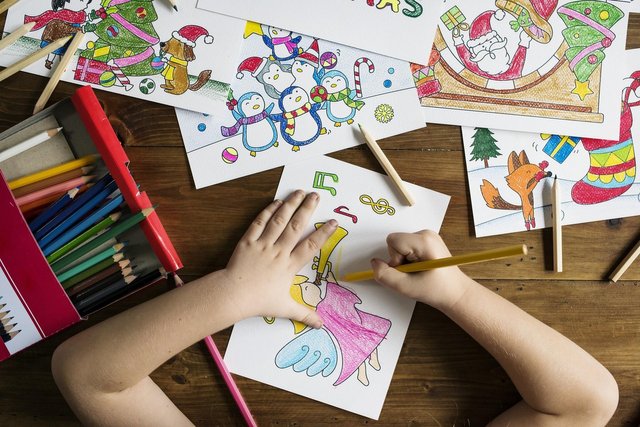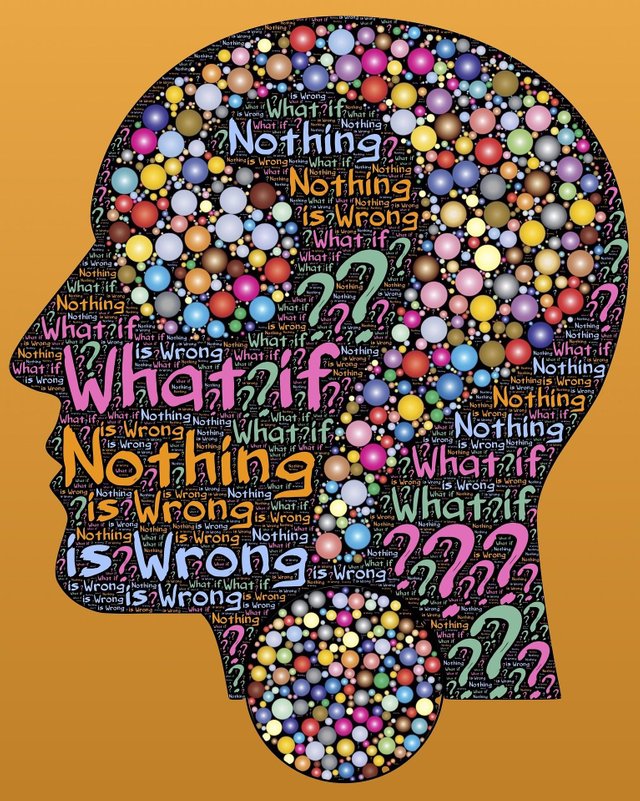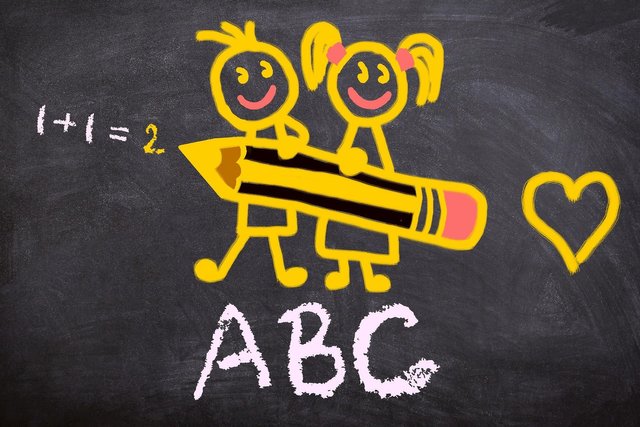Do schools diminish creative capacities? ¦ TED talk review on how the our school systems might be doing just that!.
How much wonder is missing from our world because we are driving the creative spark out of children and making them afraid to take chances. – Lynda everwideningcircles.com
Good day Steemit, been a while on TED. if you're an avid follower of my blog, you may have noticed that I haven't posted really serious societal issues such as this one for a long time. that's because I've been battling with a lot lately at school.. Phew! ain't easy for anyone anyways. By the way, I'd sure love to get your views on this, as well as see you around more often. I did put a lot of work into it. thanks already!
I remember high school, I remember the rigorous math classes, and how we were taught to memorize tons of formulas. I was a failing math student in back then because i somehow preferred to ignore the formulas and tried to figure out the problem by relying on my problem solving abilities. (though that was quite silly, I must admit). Of course this was very discouraged and I was oftentimes bored to the point of sleep. However, I did have some moments though. there were always those random days i would pay attention and understand everything very clearly and participate in class. Years later now, I realize that the problem wasn't math! yeah, it was just the way math was presented to me.
This talk, however isn't about Math as much as it is about creativity and education. And contrary to what a lot of people think, Math really is a creative subject, and this talk DID NOT try to undermine that fact in anyway.
At over 38 million views, Sir Ken Robinson's Ted talk is currently the most viewed of all Ted talks from around the world.
Sir Robinson is an expert on creativity and
education , and he strongly believes that at the moment, the two concepts, (creativity and education) don’t seem to co-exist. In this speech, Robinson argues eloquently and passionately that the current educational system is destroying our childrens’ capacity to think outside the box, and points out that Creativity is as important in education as literacy and should be treated with the same status.
Perhaps one of the things that really made this 20 minute talk a good one was Sir Robinson's sense of humour. He sure knows how to do words! 🙌
Paraphrasing, he talked about Imagining Shakespeare being seven, and in someone's english class too. 😀 Imagine if his parents had stopped him from speaking and writing the way he did, we really wouldn't have had all of those masterpieces we've grown to love.
It is however noteworthy to state that Sir Ken's opinions are not an attack on teachers or schools (who I’m sure we all agree, do a fantastic job within the boundaries of the curriculum they must follow) - they refer instead to some concepts within the system of education, throughout the world .
Themes
There are two main themes in the talk.
First, we’re all born with deep natural capacities for creativity, and the current system of mass education tend to suppress them.
Second, that it is increasingly urgent to cultivate these capacities — for personal, economic and cultural reasons — and to rethink the dominant approaches to education.
Lopsided education? What's possibly gone wrong?
Our education system has mined our minds in the way that we strip-mine the earth for a particular commodity.
I think we could all agree to that quote above if we really look at it this way. The one thing schools measure well is IQ, which in my opinion is described as the ability to learn stuff quickly..
But IQ, as we know it, is just a form of intelligence amongst other forms of intelligence.
Hence, we have many schools trying to make fast learners rather than creative citizens.
We could look at a few ways that schools stamp out creativity below.
1. Schools are industrialized.
Robinson maintained that the public education system grew as a response to industrialism. And in looking to serve the factories, schools look like factories.
If you look at public education systems in their general shape, they are manufacturing processes. And a lot of it happens - we separate people by age, it's a very linear process, very focused on certain types of outcome. And standardized testing is, in a way, the grand example of the industrial method of education. It's not there to identify what individuals can do. It's there to look at things to which they conform.
All kids get are tests. Most students study the night before and memorize a whole bunch of useless information in a period of one night. (been there, done that) And they pretty much end up doing pretty well too (I mean, the whole point was IQ right? how fast we could memorize and learn) They take the test and then a week later, they dont remember heck!
2. They create a hierarchy of subjects.
Robinson says that we privilege some subjects - like math- over others - like dance - and doing so stifles creativity.
At the top are mathematics and languages, then the humanities, and the bottom are the arts.
There's even a sorta hierarchy within the arts, with fine art and music above drama and dance.
3. Mistakes are stigmatized and punished.
Our school systems allow little space for making mistakes. we've been subconsciously tailored to believing that it's not acceptable to make mistakes.
Obviously, being wrong isn't the same as being creative, however not being prepared to be wrong is to not come out with anything original. thus gradually losing the creative sparks and the will to try.
By the time they get to adults, most kids have lost that capacity. They have become frightened of being wrong. and we run our companies like this, we stigmatize mistakes and now we're running national education systems where mistakes are the worst thing you can make. – Sir Ken Robinson.
4. Educational inflation.
Sir Ken Robinson was right when he said in the next 30 years, (as at the time of this speech) There will be more students graduating college than has ever been recorded. Already what we're witnessing in many countries is something similar. We've got lots of college graduates roaming the place, participating in diverse delinquencies because they've got nothing.
** Now kids with degrees are often heading home to carry on playing video games, because you need an MA where the previous job required a BA, and now you need a PhD for the other. it's a process of academic inflation. and it indicates that whole structure of education is shifting beneath our feet – Sir K. Robinson.**
Quick question: I'm sure there could be tons of other reasons to be added to this! it's your turn in the comments below. let me know. 😉
My take.
Imagine what would happen if we all could tap back into our 10-year old sense of adventure and courage.
We could make the most of our hobbies and possibly monetize them by making it even more valuable to people out there.
Fortunately, Steemit offers such an opportunity!
I once listened to a poem by Dylan garrity titled my life in prime numbers on button poetry and I'll share the video below.
In this video, Dylan talked about how adults grow up to believing the word "impossible". How we abandon the truth that we can do whatever we put our minds to do. Relying too much on technology and then drift away from creativity. (After all, we could always get things done by simply punching a bunch of keys on our keyboards.) How we lose the curiosity and spark for creativity and end up complicating a hell lotta things for ourselves.
So I stopped trusting my own hands, thinking those wires must be stronger.
Personally, i think of math as being intensely creative. as well as other subjects. Every subject could be creative!
 Source
Source
Afterall, in mathematics, varying assumptions imply varying outcomes. For example, If asked what is the square root of -1, one can assume it doesn't exist. you could also assume the square root of -1 exists, in which case you can derive what we call the complex number system, which enables solutions to broad classes of problems. Another example would be the next integer smaller than one. which is zero. Ancient Rome didn't have the zero. Hence, some calculations weren't possible. But once the Zero was invented, it led to a greater world of numbers and computing.
The problem is that any subject can be un-creative if taught in a way that discourages creativity. Rote memorization of multiplication tables is not creative.
Music and dance is creative too, But if music teachers give their students no choice of what notes to play and how to play them, would music really be a subject that enhances creativity? I guess not.
The focus should be not on trying to build the curriculum so that students could spend more time on subjects that we deem to be important, but rather on building the curriculum to make sure that it builds and allows for creative thought of all kinds regardless of what subjects are being studied.
There's need for improvement. Interestingly the current education system is quite fine, if Sir Ken hadn't had the education he had, he probably wouldn't be as intelligent as he is. So again, it's not about throwing the baby out with the bath water, it's just about improving things.
The Solutions
So what schools - and the people that run them - need to do is organize around helping students find the disciplines that most motivate them.
This requires a shift from standardization to personalization.
This is about "customizing to your circumstances and personalizing education to the people you're actually teaching
Source
We can revive creativity in our schools by using more engaging teaching methods, absorbing more creative curriculum and encouraging creative sparks too...
Another way we could address creativity in schools is to make a complete shift in both structural and procedural paradigms. according to Vanderbilt, to facilitate creativity you must have:
• Collaboration
• Diverse environment
• Interdisciplinary exchange
• time and resources
• Encouragement of learning from mistakes and moving forward.
**Also, other things that need to change in schools are **
• More curiosity
• More opportunities for divergent thinking and generating unique solutions to a particular problem.
• Less linear thinking. (strict instructions and the idea of "one right answer")
 Source
Source
In all, it was a really interesting talk. One I've listened to severally. And it is still trending after over a decade.
Sir Ken Robinson did mention in this talk that his book would be titled Ephiphany. However, he later did change the name to The Element. You could get his book The Element on amazon
Ken Robinson led the British government’s 1998 advisory committee on creative and cultural education, an inquiry into the significance of creativity in the educational system and the economy, and he was knighted in 2003 for his achievements
Thank you for reading.
References consulted:
Thanks to @thekittygirl for the awesome banner below





The difference between what we do and what we are capable of doing would suffice to solve most of the world's problems.
- Mahatma Gandhi
That's a very nice quote wise one
What happened to your repute bro?
Nice post, quite lengthy though , I'll try and read all of it later
Yeah Bro, you should... It concerns all of us and our kids too.
Congratulations @pangoli! You have completed some achievement on Steemit and have been rewarded with new badge(s) :
Click on any badge to view your own Board of Honor on SteemitBoard.
For more information about SteemitBoard, click here
If you no longer want to receive notifications, reply to this comment with the word
STOP